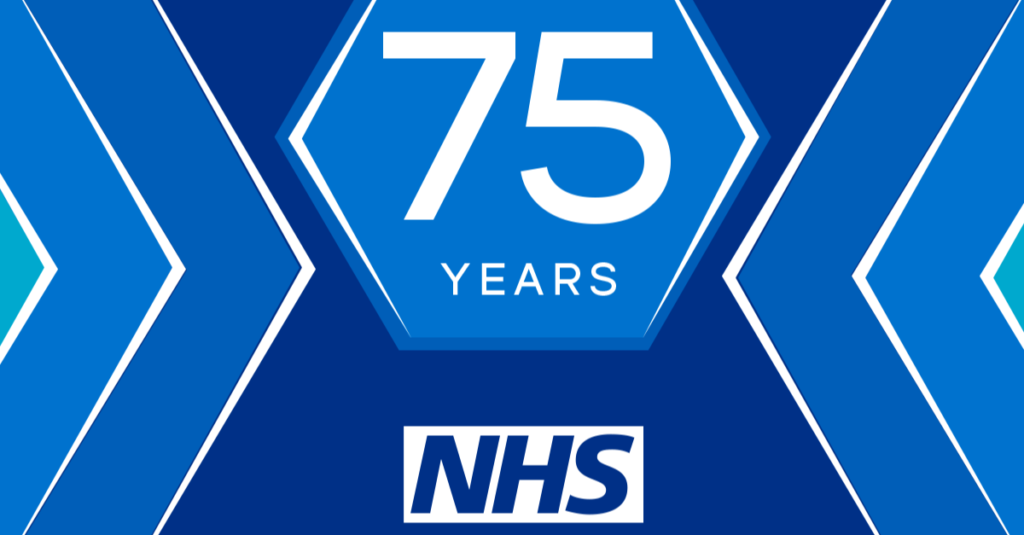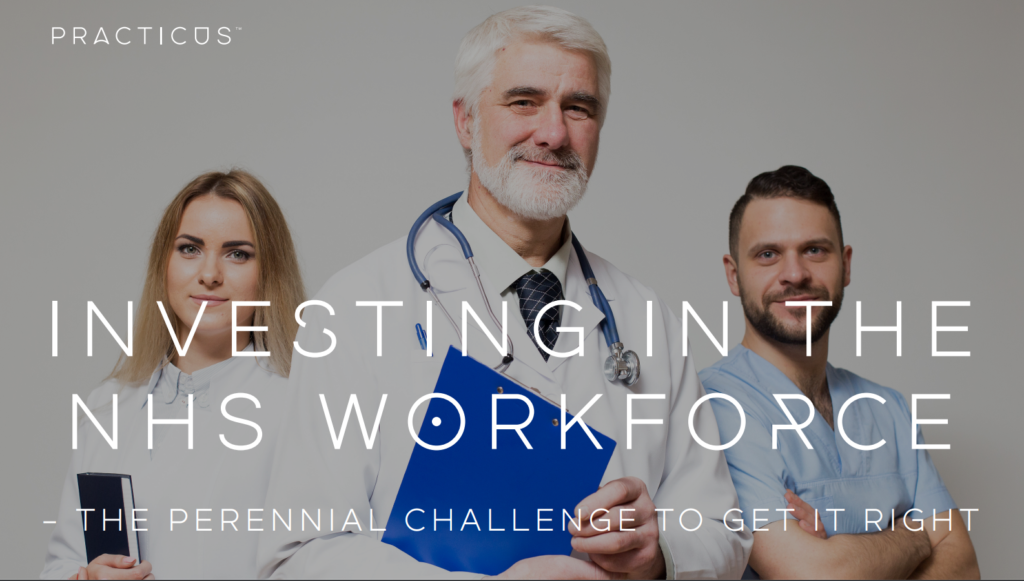The NHS at 75

A Legacy of Life-Saving Innovations and Unwavering Care
Today, we celebrate a landmark anniversary of one of our national treasures: The National Health Service (NHS). As the NHS turns 75, it stands as a testament to the indomitable spirit of compassion, innovation, and commitment to the welfare of everyone living in the UK.
Born from the ideal that good healthcare should be available to all regardless of wealth, the NHS was founded on the 5th of July, 1948. The brainchild of Health Secretary Aneurin Bevan, it transformed the face of healthcare in the UK, making it accessible and free at the point of need.
There is a lot of discussion today about its challenges, and how and whether it can survive in its current form. So, to celebrate this memorable birthday, Practicus is focusing on its past achievements that shaped the service and will never be forgotten. Having dug into the annals of history, we have come up with the list below.
Apart from these milestones, the NHS has consistently provided unparalleled care to the general population. From general practitioner visits to complex surgeries and mental health support, the NHS has been a lifeline for millions.
We cannot discuss the achievements of the NHS without acknowledging its role in one of the most challenging periods in modern history – the COVID-19 pandemic. Through sheer determination and resilience, the NHS workforce stood as a bulwark against the virus, providing care and rolling out an extensive vaccination program at a scale and pace that was awe-inspiring.
As we celebrate the 75th birthday of the NHS, let us not forget the individuals who form the backbone of this institution. The doctors, nurses, paramedics, allied healthcare professions, support staff, and countless others who, through their dedication and sacrifices, make the NHS what it is – a national treasure.
The NHS is more than a healthcare system; it is a symbol of our shared values and the embodiment of our collective hope for a healthier, more inclusive society.
Innovation Milestones
Over the past 75 years, the NHS has made incredible advances in medical care. Some of the most notable milestones include:
1948: Establishment of the NHS, making healthcare accessible and free at the point of need.
1953: Mass Vaccination against Tuberculosis with BCG Vaccine which was crucial in controlling and significantly reducing the incidence of TB in the country.
1958: Launch of the polio and diphtheria vaccination campaign, leading to the eradication of these diseases in the UK.
1960: First kidney transplant performed in the UK, at Edinburgh Royal Infirmary by Sir Michael Woodruff.
1961: Introduction of the contraceptive pill, playing a significant role in women’s health and family planning.
1968: Introduction of the first child health surveillance program to monitor the development of children and identify issues early.
1972: The world’s first CT scan was carried out at Atkinson Morley Hospital in London, revolutionising diagnostic imaging.
1978: Birth of the world’s first test-tube baby, Louise Brown, at Oldham General Hospital, a monumental development in fertility treatment (IVF).
1986: Introduction of the first national breast screening program.
1987: The world’s first clinical use of Magnetic Resonance Imaging (MRI).
1991: Launch of the NHS Breast Screening Programme, which plays a vital role in the early detection of breast cancer.
1994: The NHS Organ Donor Register is set up, helping to increase organ donations and transplants.
2002: Introduction of the NHS Direct, providing a new way for the public to access health advice and information via telephone and the internet.
2006: The introduction of a bowel cancer screening program.
2008: The introduction of the HPV vaccine to help protect against cervical cancer.
2009: Launch of the world’s first national data strategy for improving healthcare through the use of data and technology.
2012: The first use of gene therapy in the treatment of age-related macular degeneration (AMD), a leading cause of blindness.
2013: Launch of NHS 111, a non-emergency medical helpline.
2015: The NHS launches the ‘100,000 Genomes Project’ aiming to sequence 100,000 genomes from NHS patients to create a new genomic medicine service.
2017: NHS Digital’s Widening Digital Participation program is launched to tackle digital exclusion and make sure people have the skills they need to access digital health services and tools.
2018: The NHS announces plans for the genomic medicine service, aiming to make genetic testing and personalised medicine routine.
2019: The NHS Long Term Plan is published, which sets out key ambitions for the service over the next 10 years
2020-2021: Response to the COVID-19 pandemic, including the rapid development and distribution of the NHS vaccine programme, as well as telehealth consultations.
2021: Launch of the world’s first trial to test artificial intelligence and cancer diagnosis in partnership with University College London Hospitals NHS Foundation Trust.
2022: Virtual wards: The NHS has been piloting virtual wards for people with long-term conditions, such as COPD and heart failure. Virtual wards allow patients to receive care from home, which can help to reduce hospital admissions and improve patient outcomes.
2023: AI-powered diagnostics: The NHS is using AI to develop new diagnostic tools that can help to identify diseases earlier and more accurately. For example, AI is being used to develop new tools for detecting cancer and heart disease.
This is not an exhaustive list, and the NHS continues to contribute to innovative healthcare solutions.
If you would like to get in touch with Practicus you can reach us very quickly at info@practicus.com
Happy 75th Birthday, #NHS! Thank you for your unwavering service and continuous search for new
ways to treat patients and keep people healthy.
🎉🩺💙 #NHS75 #HealthcareHeroes

